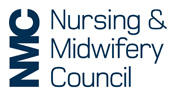First year:
You will have an introduction to core nursing skills, including observations and assessments related to basic risks, falls and nutrition. We also cover basic life support, medicine management, manual handling and infection prevention.
You’ll be immersed in simulations, treating interactive manikin patients and engaging with service users who support student learning. You will also have your first clinical placements.
For some modules, adult, child and mental health nursing students learn together. These include one module exploring professional and legal matters, and another focusing on mental and physical health across the lifespan.
Second year:
After learning how to recognise what is ‘normal’ in an individual, you will focus on what is ‘abnormal’. You’ll look at the deteriorating patient and learn skills such as how to insert and manage urinary catheters, peripheral cannulation and administering intravenous medication.
You will complete further clinical placements covering hospital and community settings.
We also look at altered mental and physical health across the lifespan, including common problems related to areas such as the respiratory, cardiovascular, gastrointestinal, musculoskeletal and neurological systems. You will explore human factors which affect patient safety and will also practise your medication management skills through simulations.
Third year:
We’ll use more complex simulated scenarios so you gain confidence and competence in the range of clinical skills you have learnt across your training.
Alongside core placements, you’ll have the chance to do a self-funded elective placement. Some students go abroad for this or link it to the specialist area in which they want to work.
There will be a focus on developing your leadership skills. You’ll complete a literature review as well, focusing on a topic of your choice. We will also support you if we feel your work has potential to be published.
Academic year
The course operates on a modular basis. Each credit taken equates to a total study time of around 10 hours. Total study time includes scheduled teaching, independent study and assessment activity.
All students take a total of 120 credits per level and 360 credits for the degree as a whole. Your overall grade for the course and your degree classification are based on the marks obtained for modules taken at levels 5 and 6.
First year:
You will have an introduction to core nursing skills, including observations and assessments related to basic risks, falls and nutrition. We also cover basic life support, medicine management, manual handling and infection prevention.
You’ll be immersed in simulations, treating interactive manikin patients and engaging with service users who support student learning. You will also have your first clinical placements.
For some modules, adult, child and mental health nursing students learn together. These include one module exploring professional and legal matters, and another focusing on mental and physical health across the lifespan.
Second year:
After learning how to recognise what is ‘normal’ in an individual, you will focus on what is ‘abnormal’. You’ll look at the deteriorating patient and learn skills such as how to insert and manage urinary catheters, peripheral cannulation and administering intravenous medication.
You will complete further clinical placements covering hospital and community settings.
We also look at altered mental and physical health across the lifespan, including common problems related to areas such as the respiratory, cardiovascular, gastrointestinal, musculoskeletal and neurological systems. You will explore human factors which affect patient safety and will also practise your medication management skills through simulations.
Third year:
We’ll use more complex simulated scenarios so you gain confidence and competence in the range of clinical skills you have learnt across your training.
Alongside core placements, you’ll have the chance to do a self-funded elective placement. Some students go abroad for this or link it to the specialist area in which they want to work.
There will be a focus on developing your leadership skills. You’ll complete a literature review as well, focusing on a topic of your choice. We will also support you if we feel your work has potential to be published.
Academic year
The course operates on a modular basis. Each credit taken equates to a total study time of around 10 hours. Total study time includes scheduled teaching, independent study and assessment activity.
All students take a total of 120 credits per level and 360 credits for the degree as a whole. Your overall grade for the course and your degree classification are based on the marks obtained for modules taken at levels 5 and 6.
Professional body accreditation
Recognised by the Nursing and Midwifery Council (NMC) for the purpose of registration as a qualified nurse (adult).
Professional body accreditation
Recognised by the Nursing and Midwifery Council (NMC) for the purpose of registration as a qualified nurse (adult).
